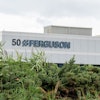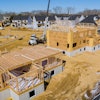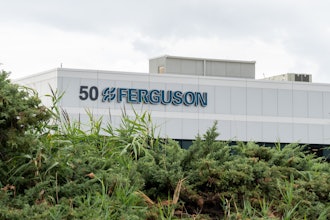BEIJING (AP) — China met a five-year target to improve energy efficiency by cutting power to industry and imposing rolling blackouts, even though a massive economic stimulus increased energy use.
Energy consumption per unit of gross domestic product was reduced by 20 percent from 2005 levels by the end of 2010, said Zhang Ping, chairman of the National Development and Reform Commission. It is China's top economic planning body.
The official Xinhua News Agency quoted Zhang on Thursday as saying detailed data have yet to be released.
Top Chinese officials said last year reaching the goal might be difficult because China sought to recover from the global economic crisis with a stimulus that focused on upgrading infrastructure that used steel, cement and other energy-intensive products.
China cut energy intensity by 14.4 percent in 2009, but its economic rebound pushed energy intensity back up by 0.09 percent in the first half of 2010, the first such increase since 2006.
Meeting the energy efficiency target was seen as a key marker of China's commitment toward fighting global warming. It has surpassed the United States as the world's largest producer of greenhouse gases, largely because its economic development over the past three decades has relied on labor- and energy-intensive growth.
Beijing's leaders issued stern orders to meet the energy-savings targets in the second half of the year and sent inspectors to see the orders were carried out in the provinces. About 2,000 steel and cement mills and other factories with poor environmental controls were closed.
Local governments took drastic measures, such as power cuts at steel mills and factories and rolling residential blackouts. One prosperous eastern city turned off street lights and ordered hotels and shopping malls to cut power use.
However, public anger forced a backlash, and the NDRC scolded local government officials for punishing ordinary citizens with power cuts.
China is hoping emerging clean-energy industries will reduce its surging need for imported oil and gas and promise economic growth and jobs.
The energy intensity targets for the next five years are still being deliberated, but media reports have suggested the new targets could be around 17 percent.


















